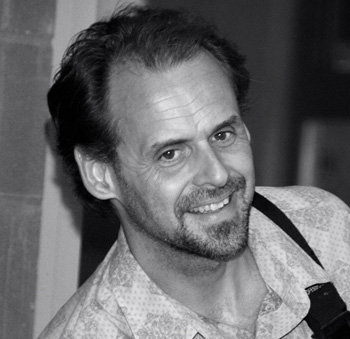
Steven Howell
Steven Howell realized how important it is to teach the Holocaust when he encountered anti-Semitism in his own classroom.
He had just begun teaching at James A. Garfield High School, a small rural school in Garettsville, Ohio, when he found that the students had not read The Diary of Anne Frank. He taught them the historical context of the book, which they knew little about, but after two weeks he walked into his classroom to find a cross with two swastikas, on which was printed “Back off.”
"It was that experience that made me realize not only how important the history is, but how the lessons still haunt us today,” Howell said. “I knew these students to be wonderful, and the message on my desk made me realize that it didn't come from them – it came from other voices and other people who helped shape and create their worldviews.”
Howell will join 24 other teachers from around the world to help commemorate the 70th anniversary of the liberation of Auschwitz in Poland by learning new methods for teaching the Holocaust. They were chosen to attend the Auschwitz: The Past is Present professional development program led by USC Shoah Foundation and Discovery Education to commemorate the 70th anniversary of the liberation of Auschwitz. The educators from 11 different countries representing four continents will attend a four-day workshop designed to deepen their understanding of the historical landscape of Poland before, during and after the Holocaust and increase their knowledge of authentic sites including Auschwitz-Birkenau.
Howell said the Holocaust teaches students important lessons, including the power of prejudice, the fragility of humanity, and the sometimes fearful amount of power we place in others. They also learn that it could be repeated.
While Howell has visited other concentration camps Terezin, Belsen and Mathausen, he has wanted to visit Poland for many years. His great-grandparents are from Poland and he is looking forward to visiting the historic sites.
Soon, only second generation survivors will be able to pass on the memories of their parents, and after that Howell worries about what will happen to the stories. That is why USC Shoah Foundation is so important, he said.
“Students read Night and they are moved, genuinely, but I can never give them what I know they receive when we visit a survivor and hear his or her story. There is a type of permanence to it,” he said.
And that incident with the swastikas? It’s now proof of what can be achieved when students have the opportunity to learn about the Holocaust.
“That was twenty years ago, and I'm proud to say that I teach in the same room, in the same community that now participates in Yom Hashoah commemorations each year,” Howell said.